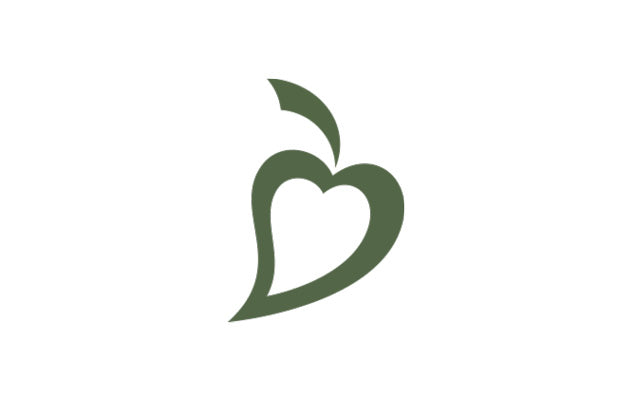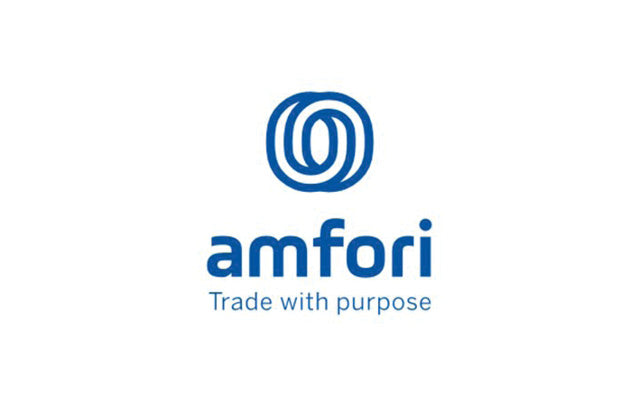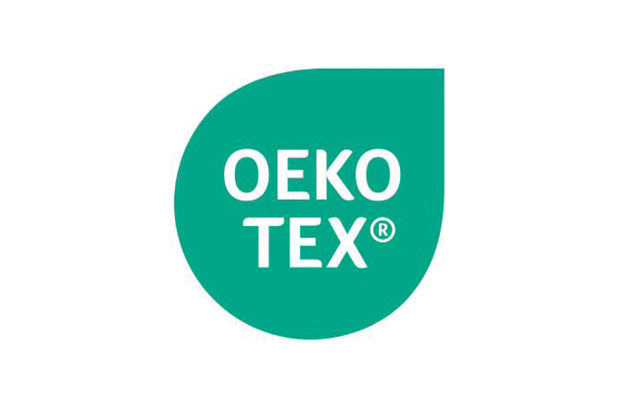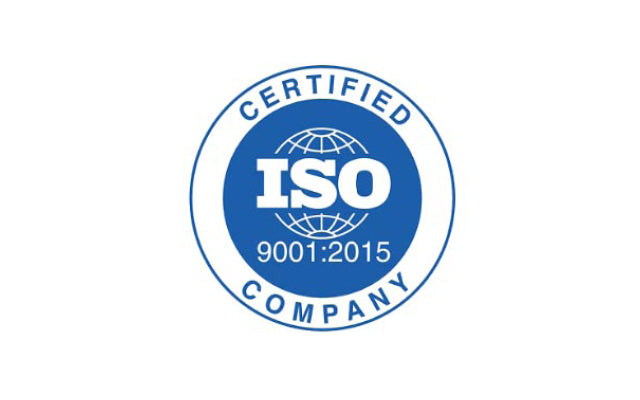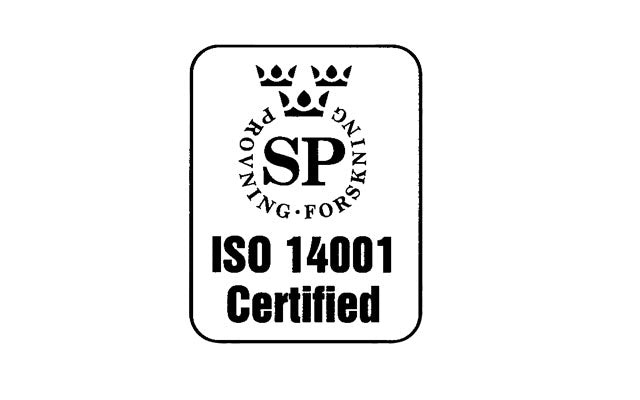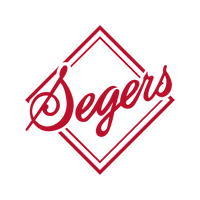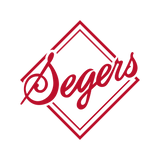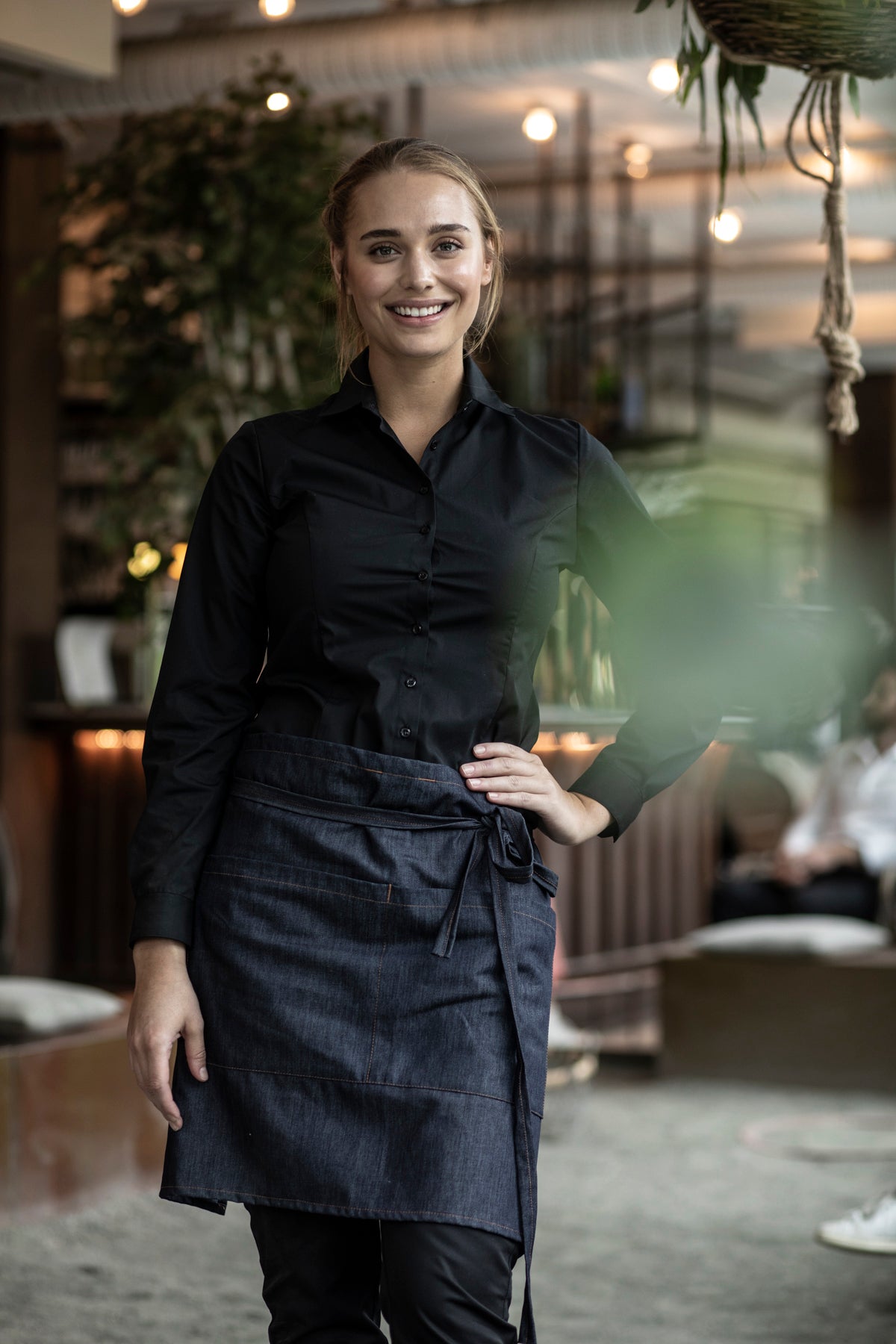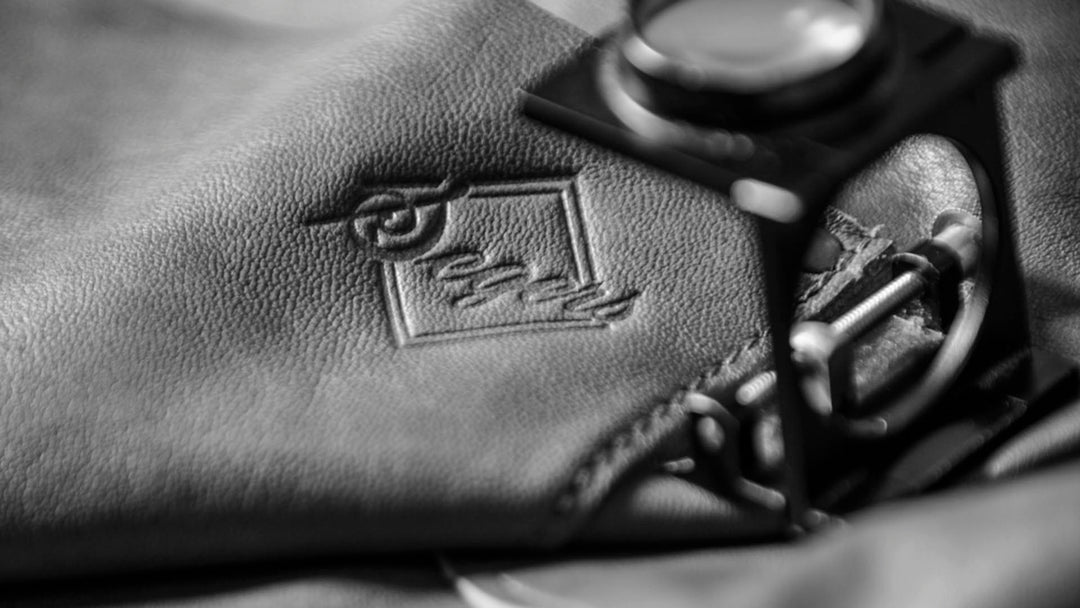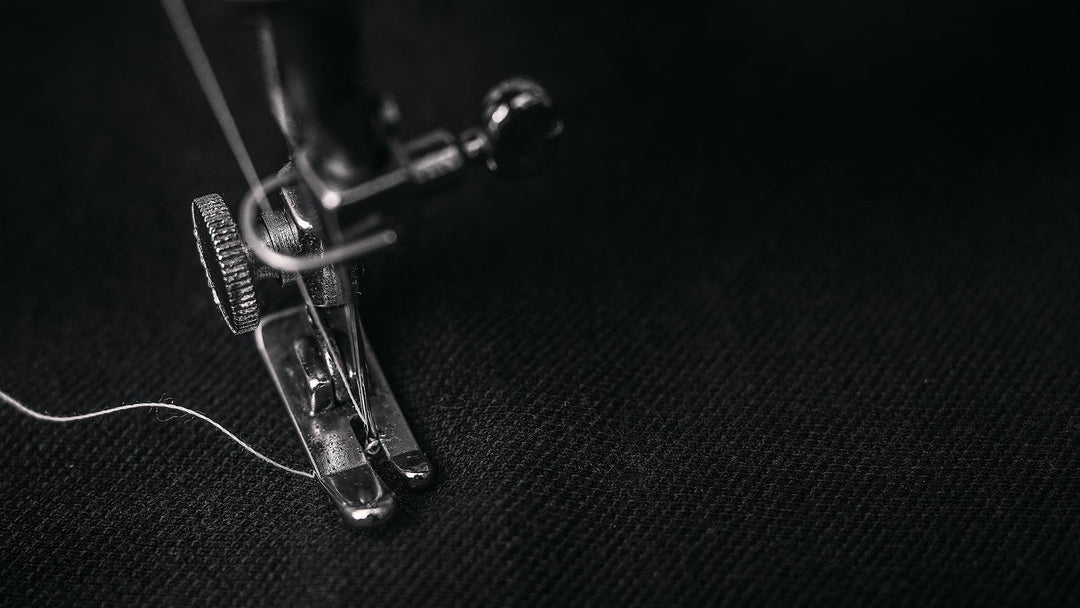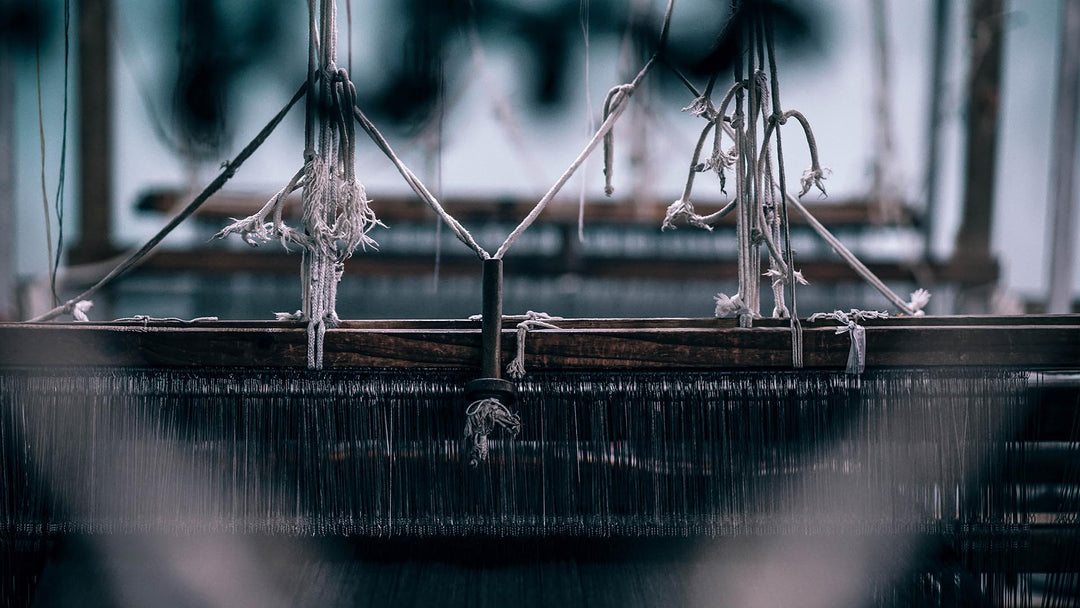7097958564022,
8627142361427,
8627142263123,
8708187095379,
8708186866003,
7096520016054,
7098621395126,
7098620510390,
7098383171766,
8708192239955,
9506288533843,
7364168351926,
7098435010742,
7098436059318,
9506290762067,
9426491474259,
7098442612918,
9506292367699,
9506291188051,
7098446053558,
7098446086326,
7098862207158,
7098630537398,
7548973187254,
7098635157686,
7098636566710,
7098637123766,
7275083956406,
7098637746358,
7097960792246,
7097960923318,
7097959940278,
7097960267958,
7097961054390,
8708186997075,
8708186866003,
8708187095379,
8708186734931,
8708187324755,
8708187226451,
8708190044499,
8708189684051,
8708189880659,
8708190273875,
7098435010742,
7098436288694,
7098438222006,
7098434748598,
7098436681910,
7098436452534,
7098436059318,
7364168351926,
7548961947830,
8516324294995,
8708193157459,
8708192600403,
8708192829779,
7097958564022,
7098442612918,
7098436059318,
7098434748598,
7313558306998,
7098438582454,
7098409648310,
7098407485622,
7098394968246,
7313558110390,
7098443235510,
7313549131958,
7098813612214,
7149553483958,
7098001850550,
7149550665910,
7210305290422,
7200487112886,
7097959940278,
7097960267958,
7097960792246,
7097960923318,
7097961054390,
7097961382070,
7097961939126,
7313525932214,
7313526227126,
7313526685878,
7313526882486,
7097962823862,
7097963544758,
7097964167350,
7097964658870,
7097964789942,
7097964953782,
7231521915062,
7231522078902,
7097986416822,
7097986547894,
7096443240630,
9830242713939,
7097960792246,
7097960923318,
7098383171766,
7097958564022,
7098397982902,
7313525932214,
7097959940278,
7064320966838,
7098381271222,
7098381828278,
7525838684342,
7313527144630,
7097991921846,
7098399391926,
7097958924470,
7097992347830,
7097991659702,
7097960267958,
7097919733942,
7097993101494,
7097958432950,
7097961054390,
7098405421238,
7097963544758,
7231521915062,
7098341195958,
7098382483638,
7363447259318,
7095890804918,
7097962823862,
7098407485622,
7313526882486,
7313526685878,
7098400407734,
7098394968246,
7313526227126,
7098405126326,
7097964658870,
7097959186614,
7097958203574,
7095890608310,
9442102772051,
7098387005622,
7097961939126,
7098404077750,
7313527570614,
7097962692790,
7200487112886,
7210305290422,
7149550665910,
8513501036883,
7548943499446,
7548942811318,
7548942254262,
8627140264275,
8627140329811,
8627140428115,
8627140493651,
9442101657939,
9442097791315,
9442099888467,
9445450056019,
9481252077907,
9478610026835,
9478020989267,
9449188098387,
9449187344723,
9449172631891,
9449172566355,
9449172140371,
9449163325779,
9445452054867,
9445450875219,
9445448909139,
9442102772051,
9426491474259,
9414184370515,
9381907398995,
9295194718547,
8896842924371,
8896842826067,
8896842694995,
8896842531155,
8877104464211,
8877102104915,
8877101482323,
8877098991955,
8877098172755,
8877095354707,
8877094502739,
8877094076755,
8877093257555,
8877092340051,
8877088735571,
8877087424851,
8877086998867,
8877085720915,
8877085426003,
8877083689299,
8877083394387,
8877079953747,
8877078905171,
8877078643027,
8877077692755,
8877073924435,
8877069631827,
8877061570899,
8877061144915,
7313550835894,
7313550344374,
7313552539830,
7313550409910,
7313550672054,
7313549689014,
7313550213302,
7313551524022,
7313550737590,
7313557323958,
7313550540982,
7313549459638,
7313550606518,
7313553588406,
7313526685878,
7313526882486,
7313558110390,
7313558274230,
7313558306998,
7313549131958,
7313548935350,
7313548247222,
7313547952310,
7313547428022,
7313547002038,
7313546608822,
7313546215606,
7313545756854,
7313544970422,
7313527570614,
7313527144630,
7313526227126,
7313525932214,
7098442612918,
7098436059318,
7364168351926,
7098435010742,
9604980048211,
7098434748598,
7098436452534,
7098436288694,
9426491474259,
8627141443923,
8627140264275,
7548961947830,
8708199186771,
8627140493651,
8516324294995,
7098438222006,
8708199154003,
7098441793718,
9478610026835,
8627140428115,
8708193780051,
8627140329811,
8627140657491,
7098442678454,
7098436681910,
8627140755795,
8627140133203,
8627140100435,
9765116051795,
7548973187254,
7098635157686,
7548972564662,
7091138265270,
7288515690678,
8401627513171,
8877092340051,
7098634535094,
7098634469558,
7208575533238,
7259584757942,
8401625612627,
9445450056019,
7064316575926,
7091012960438,
7280923345078,
7133266378934,
7098451099830,
7548969975990,
8401626399059,
7098007355574,
7208575991990,
7098419773622,
7208575336630,
7149558366390,
7259793162422,
7098407485622,
8877095354707,
7098447986870,
8708195549523,
7288515231926,
7133266837686,
7098448052406,
8877101482323,
8877045449043,
7199525470390,
7133268639926,
7098043826358,
7098420002998,
9445450875219,
8877094502739,
8506609107283,
7530117071030,
7266346500278,
7259678441654,
7259673395382,
9445448909139,
8711443284307,
7098630373558,
7098452410550,
9604980048211,
9604980113747,
9604980244819,
9604980408659,
7098435010742,
7098436452534,
7364168351926,
7098438222006,
7098436288694,
7098436681910,
7098436059318,
7098434748598,
7548961947830,
8516324294995,
9832459469139,
9765116117331,
9765116051795,
9765115887955,
9765115822419,
9765115789651,
9765115658579,
9765115494739,
9765008933203,
9736261828947,
9736261763411,
9736261730643,
9702117802323,
9702117572947,
9702117278035,
9506292367699,
9506291941715,
9506291515731,
9506291188051,
9506290762067,
9506290368851,
9506289680723,
9506289484115,
9506289156435,
9506288894291,
9506288533843,
9481252077907,
9478610026835,
9449188098387,
9449187344723,
9449172631891,
9449172566355,
9449172140371,
9449163325779,
9426491474259,
9295194718547,
8896842924371,
8896842826067,
8896842694995,
8896842531155,
8877085720915,
8877085426003,
8877083689299,
8877083394387,
8877079953747,
8877078905171,
8877078643027,
8712225128787,
8708199317843,
8708199252307,
9832459469139,
9765116117331,
9765116051795,
9765115887955,
9765115822419,
9765115789651,
9765115658579,
9765115494739,
9765008933203,
9736261828947,
9736261763411,
9736261730643,
9702117802323,
9702117572947,
9702117278035,
9506292367699,
9506291941715,
9506291515731,
9506291188051,
9506290762067,
9506290368851,
9506289680723,
9506289484115,
9506289156435,
9506288894291,
9506288533843,
9481252077907,
9478610026835,
9449188098387,
9449187344723,
9449172631891,
9449172566355,
9449172140371,
9449163325779,
9426491474259,
9295194718547,
8896842924371,
8896842826067,
8896842694995,
8896842531155,
8877085720915,
8877085426003,
8877083689299,
8877083394387,
8877079953747,
8877078905171,
8877078643027,
8712225128787,
8708199317843,
8708199252307,
7098436059318,
7097960792246,
7098636566710,
7097960923318,
7098383171766,
7097958564022,
7098446086326,
7098635813046,
7098379829430,
7275083956406,
7098442612918,
8627142263123,
7098397982902,
7548973187254,
7098635157686,
7098436059318,
7097969836214,
7364168351926,
7097968591030,
7098379993270,
7548972564662,
7098638762166,
7097959940278,
7098640040118,
7098637123766,
7098619297974,
7097988153526,
7098638729398,
7098358923446,
7098637746358,
7098435010742,
7096520016054,
7098381041846,
9604980048211,
8627142361427,
8708186997075,
7098434748598,
7098380746934,
8708186866003,
7098630537398,
8708187095379,
7098436452534,
8627142623571,
7098436288694,
7098620510390,
7064320966838,
7098608976054,
7098446020790,
7098381271222,
9506291188051,
7098609402038,
7097960792246,
7098636566710,
7097960923318,
7098446086326,
7098635813046,
7275083956406,
7098442612918,
8627142263123,
7548973187254,
7313552539830,
7098436059318,
7208577433782,
7364168351926,
7548972564662,
7313549459638,
7313551524022,
7098638762166,
7097959940278,
7098640040118,
7098637123766,
7098638729398,
7098358923446,
7098435010742,
9604980048211,
8627142361427,
7313553588406,
7098434748598,
7098630537398,
7098436452534,
8627142623571,
7098637189302,
7098436288694,
7097985564854,
7098608976054,
7064320966838,
7098446020790,
9506291188051,
7098609402038,
7098345685174,
7313527144630,
7548954378422,
8401627513171,
7098446053558,
7098344767670,
7097982550198,
8627142492499,
7098444415158,
7098615038134,
9426491474259,
8708192829779,
7062412820662,
7064316575926,
7064320966838,
7095890608310,
7095890804918,
7096443240630,
7097883033782,
7097883656374,
7097884246198,
7097958924470,
7097959186614,
7097959940278,
7097960267958,
7097960792246,
7097960923318,
7097961054390,
7097961382070,
7097961939126,
7097964789942,
7097964953782,
7097979928758,
7097982550198,
7097983172790,
7097985564854,
7097986252982,
7097986416822,
7097986547894,
7097987498166,
7097991659702,
7097991921846,
7097992347830,
7097993101494,
7097993756854,
7097995362486,
7098024427702,
7098027049142,
7098341195958,
7098341490870,
7098342277302,
7098342637750,
7098344767670,
7098345062582,
7098345685174,
7098356826294,
7098358038710,
7098358923446,
7098360332470,
7098361053366,
7098365542582,
7098367246518,
7275083956406,
7548973187254,
7098635157686,
7208577433782,
7548972564662,
7313549459638,
7098638762166,
7098640040118,
7098637123766,
7098638729398,
7098630537398,
7091138265270,
7098637189302,
7288515690678,
8401627513171,
7313549689014,
8877092340051,
7098634535094,
7098634469558,
7208575533238,
7259584757942,
8401625612627,
9445450056019,
8877104464211,
7149557678262,
7064316575926,
7091012960438,
7280923345078,
7133266378934,
7098451099830,
7548969975990,
8401626399059,
7098007355574,
7208575991990,
7098637287606,
7149557645494,
7098639876278,
7098419773622,
7208575336630,
7149558366390,
7259793162422,
7098407485622,
8877095354707,
7098447986870,
8877098991955,
8708195549523,
7288515231926,
7208577728694,
7149557514422,
7133266837686,
9765116117331,
9765116051795,
9765115822419,
9765115789651,
9765115494739,
9765008933203,
9736261763411,
9736261730643,
9506292367699,
9506291941715,
9506291515731,
9506291188051,
9506290368851,
9506289484115,
9506289156435,
9506288894291,
9506288533843,
9481252077907,
9478610026835,
9449188098387,
9449187344723,
9426491474259,
8877085720915,
8877085426003,
8877083689299,
8877083394387,
8877079953747,
8708199317843,
8708199252307,
8708199186771,
8708199154003,
8708193780051,
8708193157459,
8708192829779,
8708192600403,
8708192239955,
8708192076115,
8516328161619,
8516327997779,
8516327506259,
8516326883667,
8516326097235,
8516324294995,
7548961947830,
7364168351926,
7313550835894,
7313550737590,
7313550672054,
7313550606518,
7098446086326,
9765116117331,
9765116051795,
9765115822419,
9765115789651,
9765115494739,
9765008933203,
9736261763411,
9736261730643,
9506292367699,
9506291941715,
9506291515731,
9506291188051,
9506290368851,
9506289484115,
9506289156435,
9506288894291,
9506288533843,
9481252077907,
9478610026835,
9449188098387,
9449187344723,
9426491474259,
8877085720915,
8877085426003,
8877083689299,
8877083394387,
8877079953747,
8708199317843,
8708199252307,
8708199186771,
8708199154003,
8708193780051,
8708193157459,
8708192829779,
8708192600403,
8708192239955,
8708192076115,
8516328161619,
8516327997779,
8516327506259,
8516326883667,
8516326097235,
8516324294995,
7548961947830,
7364168351926,
7098446086326,
7098446053558,
7098446020790,
7098445856950,
7098445594806,
9765116117331,
9765116051795,
9765115822419,
9765115789651,
9765115494739,
9736261763411,
9736261730643,
9506292367699,
9506291941715,
9506291515731,
9506291188051,
9506290368851,
9506289484115,
9506289156435,
9506288894291,
9506288533843,
9481252077907,
9478610026835,
9449188098387,
9449187344723,
9426491474259,
8877083689299,
8877083394387,
8877079953747,
8708199317843,
8708199252307,
8708199186771,
8708199154003,
8708193780051,
8708193157459,
8708192829779,
8708192600403,
8708192239955,
8708192076115,
8516328161619,
8516327997779,
8516327506259,
8516326883667,
8516326097235,
8516324294995,
7548961947830,
7364168351926,
7313550835894,
7313550737590,
7313550672054,
7313550606518,
7098446086326,
7098446053558,
7098446020790,
7098445594806,
7548972564662,
7098640040118,
9506291188051,
7548954378422,
7313527144630,
9506290762067,
9506288533843,
7098407485622,
7098634076342,
7313526685878,
7098394968246,
7098027049142,
7097958203574,
7098632929462,
7098631946422,
7097961939126,
7097995362486,
7313548935350,
7098404077750,
7097962692790,
9582873936211,
9506289680723,
9702117572947,
7098032914614,
9765115822419,
9702120718675,
7098039369910,
7098447298742,
7149553483958,
7098004308150,
9604980048211,
9604980113747,
9604980244819,
9604980408659,
8708199317843,
9449188098387,
7097993756854,
7098632110262,
8708193517907,
7098034847926,
9702116065619,
9702115082579,
7098633060534,
7098630668470,
7098029015222,
7098024427702,
7098446119094,
7098001850550,
9449172631891,
9414184370515,
7347724320950,
8356690035027,
7574580592822,
7574600057014,
7574600253622,
7574600417462,
7296609353910,
7200487112886,
7313549131958,
7098438353078,
7098859421878,
8712225128787,
9702120718675,
9702119506259,
9702116065619,
9702115082579,
9583377973587,
9583377940819,
9583377809747,
9478020989267,
9445452054867,
9445450875219,
9445450056019,
9445448909139,
9381907398995,
8877101482323,
8877095354707,
8877094502739,
8877094076755,
8877093257555,
8877092340051,
8877073924435,
8877069631827,
8877045809491,
8877045449043,
8877044859219,
8711460946259,
8711443284307,
8708195549523,
8506610811219,
8506609926483,
8506609107283,
8506608157011,
8401627513171,
8401626399059,
8401625612627,
7548973187254,
7548972564662,
7548969975990,
7530169794742,
7530117791926,
7530117398710,
7530117234870,
7530117071030,
7288515690678,
7288515231926,
7288514707638,
7280923345078,
7266347843766,
7266346893494,
7266346500278,
7259793916086,
7530117071030,
7259673395382,
7266346500278,
7091078037686,
7266347843766,
7091077021878,
7259674050742,
7259674804406,
7266346893494,
7259672674486,
7098383171766,
7097958564022,
7275083956406,
7548973187254,
7098635157686,
7098436059318,
7097969836214,
7208577433782,
7364168351926,
7548972564662,
7313549459638,
7098637123766,
7098358923446,
7098435010742,
7098381041846,
8627142361427,
8708186997075,
7098434748598,
7098630537398,
8708187095379,
7098436452534,
8627142623571,
7098436288694,
7098637189302,
7098608976054,
7098609402038,
7098381828278,
7098345685174,
7313527144630,
7548954378422,
8401627513171,
7098344767670,
7098615038134,
8708192829779,
8877092340051,
8516328161619,
7098634535094,
7098621395126,
8516327506259,
7548961947830,
7098345062582,
9445450056019,
8708190044499,
8708186734931,
8627140493651,
8627142984019,
7097884246198,
7097883033782,
8627142820179,
8516324294995,
7097960792246,
7098636566710,
7097960923318,
7098383171766,
7097958564022,
7098446086326,
7098635813046,
7098379829430,
7275083956406,
7098442612918,
8627142263123,
7098397982902,
7548973187254,
7098635157686,
7098436059318,
7097969836214,
7098611335350,
7364168351926,
7097968591030,
7098379993270,
7098618970294,
7098618675382,
7548972564662,
7313525932214,
7098638762166,
7097959940278,
7098640040118,
7097988153526,
7098637123766,
7098619297974,
7098638729398,
7098358923446,
7098435010742,
7098637746358,
7096520016054,
7313558274230,
7098381041846,
9604980048211,
8627142361427,
7098617757878,
8708186997075,
7098434748598,
7098380746934,
8708186866003,
7098630537398,
8708187095379,
7098436452534,
8627142623571,
7098436288694,
7288515690678,
8627140100435,
8627140133203,
8627140657491,
8627140755795,
7292577841334,
7292578463926,
7097968591030,
7097969836214,
8627140264275,
8627140329811,
8627140428115,
8627140493651,
8627140854099,
8627140919635,
7098342277302,
7098342637750,
7098344767670,
7098345062582,
7098345685174,
8876963332435,
8876963529043,
8876963725651,
8876963987795,
8876964282707,
8627141443923,
9604980048211,
8627141607763,
9604980113747,
8627142164819,
8876965101907,
8627142263123,
8627142361427,
8627142492499,
8627142623571,
7098356826294,
7098358038710,
7098358923446,
8877039845715,
8708186734931,
8708186866003,
8708186997075,
8708187095379,
8708187226451,
8708187324755,
9442097791315,
9442099888467,
9442101657939,
8627143770451,
8627143803219,
7098379829430,
7098379993270,
7098380746934,
7098381041846,
7096520016054,
8627140100435,
8627140133203,
8627140657491,
8627140755795,
7097883033782,
7097883656374,
7097884246198,
7098608976054,
7098609107126,
7098609402038,
8876962611539,
8627141771603,
9604980244819,
8627141968211,
9604980408659,
7098611007670,
7098611335350,
8876964643155,
8876966478163,
8627142656339,
8627142820179,
8627142852947,
8627142984019,
7098615038134,
8627143213395,
8877043220819,
8708189684051,
8708189880659,
8708190044499,
8708190273875,
8708190372179,
8708190667091,
8708190798163,
7098617757878,
7098618020022,
7098618675382,
7098618970294,
7098619297974,
7098619953334,
7098620510390,
7098621395126,
7098621657270,
7098622181558,
7091138265270,
8627144130899,
7098622738614,
8877077692755,
9830246023507,
9830247268691,
9830250905939,
9830250905939,
9830249562451,
9604980244819,
9604980113747,
8876964282707,
8876963987795,
8627142984019,
8627142852947,
8627142623571,
8627142492499,
8627141771603,
8627141607763,
7098342637750,
7098342277302,
7097884246198,
7097883656374,
7097883033782,
9604980408659,
9604980048211,
8876966478163,
8876965101907,
8876963725651,
8876963529043,
8876963332435,
8876962611539,
8627142820179,
8627142656339,
8627142361427,
8627142263123,
8627141968211,
8627141443923,
7098609402038,
7098609107126,
7098608976054,
7098345685174,
7098345062582,
7098344767670,
8708190798163,
8708190372179,
8708186866003,
8627142263123,
8708190667091,
8708186734931,
8627140264275,
8708187095379,
8708186997075,
8627142492499,
8708189684051,
7098345685174,
7098608976054,
7098344767670,
8708190044499,
8708190273875,
8708187324755,
8627140493651,
8627142623571,
8708189880659,
7097883033782,
8627142656339,
7098345062582,
8627141443923,
8627142361427,
8627142820179,
8627140329811,
7098342637750,
8627140428115,
7097884246198,
8627141968211,
8627143803219,
8627141607763,
7098342277302,
8627142984019,
8627142852947,
7098609402038,
8627143770451,
8708187226451,
8876963332435,
8876962611539,
7098609107126,
7097883656374,
8876966478163,
8876965101907,
8876964282707,
8876963987795,
8876963725651,
8876963529043,
8627141771603,
7548954378422,
7098628210870,
8877102104915,
7548972564662,
7288514707638,
7288515231926,
7288515690678,
7530117791926,
7098630373558,
7098630537398,
8708195549523,
7548973187254,
7098634240182,
7098634469558,
7098634535094,
7098635157686,
7098635518134,
7098635649206,
7098635813046,
7098635944118,
7098636107958,
7098636566710,
7098637123766,
7275083956406,
7098637746358,
7290048184502,
7098638729398,
7098638762166,
7098638926006,
7313557323958,
7313558110390,
7313558274230,
7313558306998,
7098639876278,
7098640040118,
9702120718675,
7098635518134,
7098635649206,
7098635813046,
7098637123766,
7290048184502,
7098638729398,
7098638926006,
7313557323958,
7313558110390,
7098639876278,
7098640040118,
7097969836214,
7097968591030,
8708186997075,
8708186866003,
8708187095379,
7098608976054,
7098609402038,
7098345685174,
7098344767670,
8627140264275,
7098345062582,
9445450056019,
8708190044499,
8708186734931,
8627140493651,
8708189684051,
7097884246198,
7097883033782,
8876962611539,
7098342637750,
8627140854099,
8708190667091,
8708187324755,
9442101657939,
8708187226451,
8708189880659,
8627140428115,
7292578463926,
8627140919635,
8627140329811,
7098342277302,
9442099888467,
8708190798163,
9445450875219,
9445448909139,
8708190273875,
9445452054867,
7292577841334,
9830247268691,
9830249562451,
7098609107126,
7097883656374,
9830250905939,
9830248743251,
9830246023507,
9442097791315,
8708190372179,
7098379829430,
7098379993270,
7098618970294,
7098618675382,
7098617757878,
7098621657270,
7098622181558,
8876964643155,
8877077692755,
7098618020022,
8627144130899,
7098611007670,
9582873936211,
7097957810358,
7097958203574,
7097958432950,
7097958564022,
7097958924470,
7097959186614,
7363447259318,
7098341195958,
9478020989267,
7098341490870,
7097919733942,
7097962430646,
7097962692790,
7313527144630,
7313527570614,
7098381271222,
7098381828278,
7098382483638,
7098383171766,
7098387005622,
7098394968246,
7098395754678,
7525838684342,
7098397982902,
7098399391926,
7098400407734,
7098404077750,
7098405126326,
7098405421238,
9442102772051,
7098407485622,
9765115199827,
7098442612918,
7313552539830,
7098436059318,
7364168351926,
7313551524022,
7098435010742,
9604980048211,
7313553588406,
7098434748598,
7098436452534,
7098436288694,
9426491474259,
8627141443923,
7548961947830,
9604980113747,
8708199186771,
8516324294995,
7098438222006,
8708199154003,
7098441793718,
9478610026835,
7097979928758,
8708193780051,
7363545071798,
7098442678454,
8877078905171,
8627141607763,
7098858930358,
7098436681910,
7098858602678,
7363527508150,
9765116051795,
7098859094198,
7098858832054,
8516322623827,
9830250905939,
9830249562451,
9830248743251,
9830247268691,
9830246023507,
9604980408659,
9604980244819,
9604980113747,
9604980048211,
9445452054867,
9445450875219,
9445450056019,
9445448909139,
9442101657939,
9442099888467,
9442097791315,
8876965101907,
8876962611539,
8708190798163,
8708190667091,
8708190372179,
8708190273875,
8708190044499,
8708189880659,
8708189684051,
8708187324755,
8708187226451,
8708187095379,
8708186997075,
8708186866003,
8708186734931,
8627143803219,
8627143770451,
8627142984019,
8627142852947,
8627142820179,
8627142656339,
8627142623571,
8627142492499,
8627142361427,
8627142263123,
8627142164819,
8627141968211,
8627141771603,
8627141607763,
8627141443923,
8627140919635,
8627140854099,
8627140755795,
8627140657491,
7091138265270,
7098442612918,
7548973187254,
8708186997075,
8708186866003,
8708187095379,
9426491474259,
8708199186771,
8708199154003,
7548969975990,
8708190667091,
8708187226451,
9442101657939,
9478610026835,
9442099888467,
8708190798163,
9765116051795,
9702120718675,
9702119506259,
7098442612918,
7098436059318,
7364168351926,
7098435010742,
7098434748598,
7098436452534,
7098436288694,
9426491474259,
8516327506259,
7548961947830,
8708199186771,
8516324294995,
7098438222006,
8708199154003,
7098441793718,
8516326097235,
9478610026835,
8708193780051,
7098442678454,
7098436681910,
8516326883667,
9765116051795,
7098436059318,
7098438222006,
7098444415158,
7098344767670,
7098621395126,
7098620510390,
7098445168822,
7098445037750,
7098444218550,
7098443235510,
7098436681910,
7098436452534,
7098436288694,
7098435010742,
7098434748598,
7098409648310,
7098409320630,
7098345685174,
7098345062582,
7364168351926,
7548961947830,
8516324294995,
8516327997779,
8516328161619,
8627140264275,
8627140329811,
8627140428115,
8627140493651,
8627141443923,
8627142263123,
8627142361427,
8627142492499,
8627142623571,
8708192076115,
8708192239955,
8708199252307,
8708199317843,
9506288533843,
9506288894291,
9506289156435,
9506289484115,
9506291188051,
9506291515731,
9506291941715,
9506292367699,
9604980048211,
9765115494739,
9765116117331,
7098342637750,
7098342277302,
9830249562451,
7097884246198,
7097883656374,
7097883033782,
9830250905939,
8876964282707,
8876963987795,
9604980113747,
8627141607763,
9604980244819,
8627141771603,
8876964643155,
8627142623571,
8627142492499,
8627142984019,
8627142852947,
8877043220819,
7097983172790,
7097982550198,
7098618020022,
7098381041846,
7098380746934,
7098619953334,
7098619297974,
7097988645046,
7097988153526,
7098622181558,
7098621657270,
7098622738614,
7097993756854,
7097995362486,
7098001850550,
7098004308150,
7098024427702,
7098027049142,
7098034847926,
7098039369910,
7098630668470,
7098631946422,
7098632110262,
7098632929462,
7098635649206,
7098635813046,
7098635518134,
7098637123766,
7098637353142,
7098637287606,
7098637189302,
8627140133203,
8627140100435,
8876967035219,
7205920932022,
7313546215606,
7313545756854,
7313544970422,
7313546608822,
8516319347027,
8516318855507,
9702115082579,
7098370949302,
7098370785462,
7098370261174,
7098371276982,
7098371047606,
7098372325558,
7098371801270,
7098371375286,
7098372554934,
7098372456630,
8877058556243,
8877058949459,
8877060620627,
8877061144915,
7098377830582,
7098377961654,
8877061570899,
7313549131958,
7313548935350,
7313549459638,
7313549689014,
8513462698323,
8513462403411,
7259673395382,
7266346893494,
7266346500278,
7259674804406,
7259674050742,
7266347843766,
7259672674486,
7530117071030,
7091077021878,
7091078037686,
7149553483958,
7259583971510,
7091013583030,
8877069631827,
7091012960438,
7259585413302,
8708187324755,
8516322623827,
7098358923446,
8516327506259,
7098442678454,
8516326883667,
7098341195958,
8516324294995,
7098445168822,
7098615038134,
7098429341878,
7098445594806,
9702115082579,
9702116065619,
8877044859219,
8877045449043,
8877045809491,
8401625612627,
8401626399059,
8401627513171,
8877092340051,
9582873936211,
7098407485622,
7064316575926,
7098451099830,
7098452410550,
7280923345078,
8711443284307,
8711460946259,
8877093257555,
8877094076755,
8877094502739,
8877095354707,
7098341490870,
9478020989267,
7098447986870,
7098448052406,
7098449133750,
7098449658038,
7133266378934,
7133266837686,
7133268115638,
7133268639926,
8877083394387,
8877083689299,
8506608157011,
8506609107283,
8506609926483,
8506610811219,
8877069631827,
7146993057974,
7149558333622,
7149558366390,
9381907398995,
8877073924435,
7530117071030,
7098630373558,
8877101482323,
7530117791926,
7098634469558,
7098634535094,
7098635157686,
9445448909139,
9445450056019,
7574600057014,
7347724320950,
7574600253622,
7574580592822,
8356690035027,
7296609353910,
7574600417462,
7098379829430,
7097969836214,
7097968591030,
7098379993270,
7098618970294,
7098618675382,
7098619297974,
7098358923446,
7096520016054,
7098617757878,
7098620510390,
7098621657270,
7098619953334,
7096520671414,
7098615038134,
7098621395126,
8627140854099,
7098622181558,
8876964643155,
8627140919635,
8627140657491,
8877077692755,
8627140755795,
7098618020022,
8627140133203,
8627140100435,
8627144130899,
8627142164819,
9830247268691,
7098611007670,
9830246023507,
8513462698323,
8513462403411,
7530117071030,
7313549689014,
7313549459638,
7313549131958,
7313548935350,
7266347843766,
7266346893494,
7266346500278,
7259674804406,
7259674050742,
7259673395382,
7259672674486,
7149553483958,
7098004308150,
7098001850550,
7097995362486,
7097993756854,
7091078037686,
7091077021878,
7574600057014,
7347724320950,
7574600253622,
7574580592822,
8356690035027,
7574600417462,
7555620602038,
8708192239955,
9506288533843,
7098409648310,
9506289484115,
8708192076115,
9506289156435,
9506288894291,
7098409320630,
9765115494739,
7098383171766,
7098387005622,
7098446086326,
7098635157686,
7275083956406,
7098634240182,
8627142263123,
8627142361427,
7098381271222,
7098446020790,
7098634469558,
7098436452534,
8627140264275,
8627140493651,
8627140657491,
8627141968211,
8877042041171,
7097979928758,
7363545071798,
7098445856950,
8877085426003,
8877085720915,
9765008933203,
7098438254774,
9702119506259,
9702117802323,
9765116117331,
9765115887955,
9765115789651,
9765115658579,
9765115494739,
9702117278035,
8708186734931,
8708193780051,
8708195549523,
9583377940819,
8708190372179,
7097968591030,
7208577433782,
7098446086326,
7098383171766,
7097958564022,
7098397982902,
7098381271222,
7098381828278,
7525838684342,
7313527144630,
7098399391926,
7097958924470,
7097919733942,
7097958432950,
7098405421238,
7098341195958,
7098382483638,
7363447259318,
7098407485622,
7098400407734,
7098394968246,
7098405126326,
7097959186614,
7097958203574,
9442102772051,
7098387005622,
7098404077750,
7313527570614,
7097962692790,
9582873936211,
7098395754678,
7097957810358,
7097962430646,
7098341490870,
9765115199827,
9478020989267,
9582873936211,
9478020989267,
7098341490870,
8877044859219,
8877045449043,
8711443284307,
8877045809491,
7280923345078,
7064316575926,
9702115082579,
9702116065619,
7091138265270,
7098407485622,
7259673395382,
7266346893494,
7266346500278,
7259674804406,
7259674050742,
7266347843766,
7259672674486,
7530117071030,
7091077021878,
7091078037686,
7259583971510,
7091013583030,
8877069631827,
7091012960438,
7259585413302,
7091015221430,
7259584757942,
7091012108470,
7259583250614,
7530169794742,
7098415481014,
7098416332982,
7530117234870,
7098014531766,
7098015809718,
7259678441654,
7098008305846,
7098008928438,
7098007355574,
7259680342198,
7098010173622,
7259679555766,
7098006405302,
7259677589686,
7098420002998,
9381907398995,
7098419773622,
7097969836214,
7097968591030,
9830247268691,
9830246023507,
7098345685174,
7098345062582,
7098344767670,
7098609402038,
7098609107126,
7098608976054,
8876962611539,
8876963529043,
8876963332435,
8876963725651,
9604980048211,
8627141443923,
9604980408659,
8627141968211,
8627142164819,
7098611007670,
8876965101907,
8876966478163,
8627142361427,
8627142263123,
8627142820179,
8627142656339,
7098358038710,
7098356826294,
7098358923446,
7098615038134,
8877039845715,
8627143213395,
7097986252982,
7097985564854,
7098617757878,
7098379993270,
7098379829430,
7098618970294,
7098618675382,
7096520671414,
7096520016054,
7098621395126,
7098620510390,
8627144130899,
8877077692755,
7098446119094,
7098447298742,
7098029015222,
7098032914614,
8877102104915,
8627140755795,
8627140657491,
7205920833718,
8877044859219,
8877045449043,
8711443284307,
8877045809491,
7280923345078,
7064316575926,
7313547952310,
7313547428022,
7313547002038,
7313548247222,
7098365542582,
7098361053366,
7098360332470,
8877047382355,
8877046759763,
7098367246518,
7098369769654,
7098369638582,
9702116065619,
7098373898422,
7098374258870,
7098617757878,
8627144130899,
8877087424851,
8877086998867,
7149555810486,
7149555876022,
7149555941558,
7149555908790,
7146992369846,
7133268115638,
8877092340051,
7133266837686,
7133268639926,
7133266378934,
8877095354707,
8877094502739,
7149557514422,
7149557678262,
7149557645494,
7146992861366,
8506610811219,
8506609926483,
7149557809334,
7149557711030,
7149557842102,
7313558306998,
7097960792246,
7098636566710,
7097960923318,
7098383171766,
7097958564022,
7098446086326,
7098635813046,
7098379829430,
7275083956406,
7098442612918,
8627142263123,
7098397982902,
7548973187254,
7098635157686,
7313552539830,
7098436059318,
7097969836214,
7098611335350,
7364168351926,
7097968591030,
7098379993270,
7098618970294,
7098618675382,
7548972564662,
7313525932214,
7313549459638,
7313551524022,
7098638762166,
7097959940278,
7098637123766,
7098619297974,
7097988153526,
7098638729398,
7098637746358,
7098435010742,
7096520016054,
7313558274230,
7098381041846,
9604980048211,
8627142361427,
7098617757878,
7098434748598,
7098380746934,
7098630537398,
7098436452534,
7091138265270,
8627142623571,
7098436288694,
7097985564854,
7288515690678,
7097979928758,
7363545071798,
8877042041171,
7097982550198,
7097983172790,
8877047906643,
7097985564854,
7097986252982,
7098029015222,
7098032914614,
7098034847926,
7098039369910,
7098039369910,
7098032914614,
7098034847926,
7098029015222,
8513501036883,
7098436681910,
7097961054390,
7095890608310,
7313550540982,
7313550835894,
7313527570614,
7098859094198,
8627140854099,
8877045809491,
9445448909139,
9445450875219,
9481252077907,
7097960792246,
7098636566710,
7097960923318,
7098383171766,
7097958564022,
7098446086326,
7098635813046,
7098379829430,
7275083956406,
7098442612918,
8627142263123,
7098397982902,
7548973187254,
7098635157686,
7098436059318,
7097969836214,
7098611335350,
7364168351926,
7097968591030,
7098379993270,
7098618970294,
7098618675382,
7548972564662,
7313525932214,
7098638762166,
7097959940278,
7098640040118,
7098637123766,
7098619297974,
7097988153526,
7098638729398,
7098358923446,
7098637746358,
7098435010742,
7096520016054,
7313558274230,
7098381041846,
9604980048211,
8627142361427,
7098617757878,
8708186997075,
7098434748598,
7098380746934,
8708186866003,
7098630537398,
8708187095379,
7098436452534,
8627142623571,
7098436288694,
7288515690678,
7098379829430,
7097969836214,
7097968591030,
7098379993270,
7098618970294,
7098618675382,
7098619297974,
7098358923446,
7096520016054,
7098381041846,
7098617757878,
7098380746934,
7098620510390,
7098621657270,
7098619953334,
7096520671414,
7098615038134,
7098621395126,
7098622181558,
8876964643155,
8877077692755,
7098618020022,
8627144130899,
8627142164819,
9830247268691,
7098611007670,
9830246023507,
7098397982902,
7098381828278,
7363447259318,
8708190667091,
8708190798163,
8708190372179,
7098449133750,
7098630373558,
7313545756854,
7098372554934,
7313546608822,
7098371047606,
7313544970422,
7098370785462,
7098377961654,
7313546215606,
7098370949302,
7098371276982,
8877061570899,
7098371801270,
7098372325558,
7098371375286,
7098370261174,
8516319347027,
8876967035219,
8877058949459,
8877061144915,
7205920932022,
9702115082579,
7098372456630,
8877060620627,
7098377830582,
8877058556243,
8516318855507,
7098636566710,
7098635813046,
7275083956406,
7548973187254,
7098635157686,
7208577433782,
7548972564662,
7098638762166,
7098640040118,
7098637123766,
7098638729398,
7098630537398,
7098637189302,
7548954378422,
8401627513171,
8877092340051,
7098634535094,
7098634469558,
8877087424851,
8401625612627,
9445450056019,
8877104464211,
7064316575926,
7097987170486,
7280923345078,
7133266378934,
7098451099830,
7548969975990,
8401626399059,
7098635944118,
8877086998867,
8877088735571,
7098637287606,
8877102104915,
7098639876278,
7098636107958,
7149558366390,
7098407485622,
8877095354707,
7098447986870,
8708195549523,
7208577728694,
7133266837686,
7098635649206,
7098448052406,
8877101482323,
8877045449043,
7199525470390,
7133268639926,
7098400407734,
8708190667091,
7098621395126,
8708190798163,
8708189684051,
7098619953334,
8708190372179,
7098618675382,
8708190044499,
8708189880659,
7098618970294,
7098619297974,
7098617757878,
7098620510390,
7098621657270,
7098608976054,
7097883033782,
8627142656339,
7098622181558,
8627142820179,
7098615038134,
7097884246198,
8627141968211,
8627142984019,
8627142852947,
7098609402038,
7098618020022,
8627140133203,
8877077692755,
8876962611539,
8627140755795,
8627140657491,
7098611007670,
7098609107126,
7097883656374,
8876964643155,
8708190273875,
8627144130899,
8627143213395,
8627141771603,
8627140100435,
9604980244819,
9604980408659,
9830246023507,
9830247268691,
9830250905939,
7363447259318,
7098341195958,
7097959186614,
7097958924470,
9478020989267,
7098341490870,
7363545071798,
7097979928758,
7205920833718,
7205920932022,
8877044859219,
8877045449043,
8711443284307,
8877045809491,
7280923345078,
7064316575926,
9702115082579,
7548951036086,
7548950675638,
9702116065619,
7098400407734,
7548954378422,
8877087424851,
8877086998867,
7364169793718,
8877088735571,
7098449133750,
7098448052406,
7098449658038,
7098447986870,
7133268115638,
8877092340051,
7133266837686,
7133268639926,
7133266378934,
9445452054867,
9445450875219,
9445450056019,
9445448909139,
8877094076755,
8877093257555,
8877095354707,
8877094502739,
8401627513171,
8401626399059,
8401625612627,
8711460946259,
7098452410550,
7098451099830,
8506609107283,
7098032914614,
7098029015222,
7098039369910,
7098034847926,
7098004308150,
7098001850550,
7149553483958,
7098447298742,
7098446119094,
7098634076342,
7098633060534,
7098027049142,
7098024427702,
7098632929462,
7098632110262,
7098631946422,
7098630668470,
7097995362486,
7097993756854,
7205920833718,
8513501036883,
7548943499446,
7548942811318,
7548942254262,
8516319347027,
8516318855507,
7363545071798,
7097979928758,
7149557842102,
7149557809334,
7149557711030,
8708195549523,
9702120718675,
9702119506259,
7548969975990,
7548951036086,
7548950675638,
9702116065619,
9702115082579,
7098377961654,
7098377830582,
7098374258870,
7098373898422,
7098372554934,
7098372456630,
7098371276982,
7098371047606,
7098369769654,
7098369638582,
7548973187254,
7098636566710,
7275083956406,
7208577433782,
7098638762166,
8877104464211,
7098635944118,
7098636107958,
7098634076342,
7208577728694,
7098633060534,
7098374258870,
7098369638582,
7313547952310,
7098369769654,
7313547428022,
7313547002038,
8877047382355,
7098361053366,
7313548247222,
7098367246518,
7098365542582,
7205920833718,
8877046759763,
7098360332470,
9702116065619,
7098373898422,
7098636566710,
7275083956406,
7098638762166,
7098637746358,
7313558274230,
7313558306998,
7098635944118,
7098636107958,
8877102104915,
7098633060534,
7098634076342,
7275083956406,
7208577433782,
8877104464211,
7208577728694,
7098638762166,
9830247268691,
9830246023507,
9702116065619,
9604980408659,
9604980048211,
8877104464211,
8877102104915,
8877095354707,
8877094502739,
8877092340051,
8877087424851,
8877086998867,
8877077692755,
8877047382355,
8877046759763,
8877045809491,
8877045449043,
8877044859219,
8877039845715,
8876966478163,
8876965101907,
8876963725651,
8876963529043,
8876963332435,
8876962611539,
8711443284307,
8627144130899,
8627143213395,
8627142820179,
8627142656339,
8627142361427,
8627142263123,
8627142164819,
8627141968211,
8627141443923,
8627140755795,
8627140657491,
8506610811219,
8506609926483,
7313558306998,
7313558274230,
7313548247222,
7313547952310,
7313547428022,
7313547002038,
7280923345078,
7275083956406,
7208577728694,
7208577433782,
7205920833718,
9830250905939,
9830249562451,
9830248743251,
9604980408659,
9604980244819,
9604980113747,
9604980048211,
9445452054867,
9445450875219,
9445450056019,
9445448909139,
9442101657939,
9442099888467,
9442097791315,
8876965101907,
8876962611539,
8708190798163,
8708190667091,
8708190372179,
8708190273875,
8708190044499,
8708189880659,
8708189684051,
8708187324755,
8708187226451,
8708187095379,
8708186997075,
8708186866003,
8708186734931,
8627143803219,
8627143770451,
8627143213395,
8627142984019,
8627142852947,
8627142820179,
8627142656339,
8627142623571,
8627142492499,
8627142361427,
8627142263123,
8627141968211,
8627141771603,
8627141607763,
8627141443923,
8627140919635,
8627140854099,
8627140755795,
8627140657491,
8627140493651,
8627140428115,
8627141443923,
8708190798163,
8708190667091,
8708190372179,
8513501036883,
8516328161619,
8513462403411,
8516327997779,
8516327506259,
8516326883667,
8516326097235,
8516324294995,
8516322623827,
8516319347027,
8516318855507,
8513462698323,
8506610811219,
8506609926483,
8506609107283,
8506608157011,
8401627513171,
8401626399059,
8401625612627,
7548973187254,
7548972564662,
8627140264275,
8627140854099,
8627140919635,
8708186734931,
8708186866003,
8708186997075,
8708187095379,
8708187226451,
8708187324755,
8708189684051,
8708189880659,
8708190044499,
8708190273875,
8708192076115,
8708192239955,
8708192600403,
8708192829779,
8708193157459,
8708193255763,
8708193517907,
8708193780051,
8708195549523,
8708199186771,
8708199252307,
8708199154003,
8708199317843,
7097960792246,
7098636566710,
7097960923318,
7098383171766,
7097958564022,
7098446086326,
7098635813046,
7098379829430,
7275083956406,
7098442612918,
8627142263123,
7098397982902,
7548973187254,
7098635157686,
7313552539830,
7098436059318,
7097969836214,
7098611335350,
7364168351926,
7097968591030,
7098379993270,
7098618970294,
7098618675382,
7313525932214,
7548972564662,
7313549459638,
7313551524022,
7098638762166,
7097959940278,
7098637123766,
7097988153526,
7098619297974,
7098638729398,
7098637746358,
7098435010742,
7096520016054,
7313558274230,
7098381041846,
9604980048211,
8627142361427,
7098617757878,
8708186997075,
7098434748598,
7098380746934,
8708186866003,
7098630537398,
8708187095379,
7098436452534,
7091138265270,
8627142623571,
8516326097235,
7098436288694,
8516327997779,
7098858930358,
7097959186614,
8877087424851,
8877088735571,
7574600057014,
7347724320950,
7097960792246,
7098636566710,
7574600253622,
7097960923318,
7098383171766,
7097958564022,
7098446086326,
7098635813046,
7098379829430,
7574580592822,
7275083956406,
7098442612918,
8356690035027,
8627142263123,
7098397982902,
7548973187254,
7098635157686,
7313552539830,
7098436059318,
7097969836214,
7208577433782,
7098611335350,
7364168351926,
7097968591030,
7098379993270,
7098618970294,
7098618675382,
7548972564662,
7313525932214,
7313549459638,
7313551524022,
7098638762166,
7097959940278,
7098640040118,
7098637123766,
7098619297974,
7097988153526,
7098638729398,
7098358923446,
7098435010742,
7098637746358,
7296609353910,
7096520016054,
7313558274230,
7098381041846,
9604980048211,
8627142361427,
7313553588406,
9604980048211,
7149557678262,
8877086998867,
7530117791926,
9604980113747,
7208577433782,
7364169793718,
7098367246518,
7530117071030,
8877088735571,
7098637287606,
9604980244819,
7098637189302,
9604980408659,
7098630373558,
7098358923446,
8877087424851,
7098638926006,
7098358038710,
8876962611539,
8876963987795,
8876964282707,
8876964643155,
8876965953875,
8876967035219,
8877039845715,
8877042041171,
8877045449043,
8877047382355,
8877047906643,
8877052166483,
8877058949459,
8877060620627,
8877061144915,
8877061570899,
8877078643027,
8877078905171,
8877079953747,
8877083689299,
8877085426003,
8877092340051,
8877098172755,
8877098991955,
8877102104915,
8877104464211,
7097884246198,
7098609402038,
7098615038134,
8627143213395,
9381907398995,
8876963332435,
8877085720915,
8877043220819,
8877046759763,
8876966478163,
8876963529043,
8877083394387,
8877073924435,
8877069631827,
9830242713939,
8877058556243,
8876963725651,
7313549459638,
9445452054867,
9445450875219,
9445450056019,
9445448909139,
8877092340051,
7149556138166,
7149555941558,
7149555908790,
7149555876022,
7149555810486,
7146992369846,
7133268639926,
7133268115638,
7133266837686,
7133266378934,
7104720535734,
7104720371894,
7104719847606,
7104719683766,
7098449658038,
7098449133750,
7098448052406,
7098447986870,
7097960792246,
7098636566710,
7097960923318,
7098383171766,
7097958564022,
7098446086326,
7098635813046,
7098379829430,
7275083956406,
7098442612918,
8627142263123,
7098397982902,
7548973187254,
7098635157686,
7313552539830,
7098436059318,
7097969836214,
7208577433782,
7098611335350,
7364168351926,
7097968591030,
7098379993270,
7098618970294,
7098618675382,
7548972564662,
7313525932214,
7313549459638,
7313551524022,
7098638762166,
7097959940278,
7098640040118,
7098637123766,
7098619297974,
7097988153526,
7098638729398,
7098358923446,
7098637746358,
7098435010742,
7096520016054,
7313558274230,
7098381041846,
9604980048211,
8627142361427,
7313553588406,
7098617757878,
8708186997075,
7098434748598,
7098380746934,
8708186866003,
7098630537398,
7098636566710,
7098383171766,
7097958564022,
7098446086326,
7275083956406,
7098442612918,
8627142263123,
7548973187254,
7098635157686,
7098436059318,
7364168351926,
7098637123766,
7098637746358,
7098435010742,
7096520016054,
8627142361427,
8708186866003,
7098630537398,
8708187095379,
7098620510390,
9506291188051,
7098446053558,
9426491474259,
7098621395126,
9506292367699,
7098862207158,
8708192239955,
9506288533843,
9506290762067,
7313526882486,
7313527570614,
7292577841334,
7292578463926,
7097968591030,
7097969836214,
8627140100435,
8627140133203,
8627140264275,
8627140329811,
8627140428115,
8627140493651,
8627140657491,
8627140755795,
8627140854099,
8627140919635,
7098342277302,
7098342637750,
7097883033782,
7097883656374,
7097884246198,
7098344767670,
7098345062582,
7098345685174,
7098608976054,
7098609107126,
7098609402038,
8876962611539,
8876963332435,
8876963529043,
8876963725651,
8876963987795,
8876964282707,
8627141443923,
9604980048211,
8627141607763,
9604980113747,
8627141771603,
9604980244819,
8627141968211,
9604980408659,
8627142164819,
7098611007670,
7098611335350,
8876964643155,
8876965101907,
8876966478163,
8627142263123,
8627142361427,
8627142492499,
8627142623571,
8627142656339,
7098611335350,
7098397982902,
7098628210870,
7098445856950,
7098399391926,
8877085426003,
8877085720915,
9765008933203,
7097958564022,
7098442612918,
7548973187254,
7548972564662,
9604980048211,
8708186997075,
8708186866003,
7098630537398,
8708187095379,
7288515690678,
9506291188051,
7548954378422,
9426491474259,
8627141443923,
9604980408659,
7259584757942,
9604980113747,
9506292367699,
8708199186771,
8708190044499,
8708186734931,
9604980244819,
8708189684051,
7097958432950,
8708199154003,
8708199317843,
8627140854099,
9506291515731,
8708192239955,
8708190667091,
9442101657939,
8708199252307,
8708187226451,
9478610026835,
8708189880659,
7292578463926,
9506290762067,
9506288533843,
8876963987795,
8708193780051,
8627140919635,
9449188098387,
8627143770451,
8627141968211,
7259793162422,
9442099888467,
8627143803219,
8627140657491,
8708195549523,
8627141607763,
7548973187254,
9604980048211,
8708186997075,
8708186866003,
8708187095379,
7548954378422,
8627141443923,
9604980408659,
9604980113747,
8708190044499,
8708186734931,
9604980244819,
8708189684051,
8627140854099,
8708190667091,
9442101657939,
8708187226451,
8708189880659,
7292578463926,
8876963987795,
8627140919635,
8627143770451,
8627141968211,
9442099888467,
8627143803219,
8627140657491,
8708195549523,
8627141607763,
8513462698323,
8708190798163,
8876963332435,
8877043220819,
8627140755795,
8708190273875,
8627143213395,
8627140133203,
8627140100435,
8876964282707,
8876963529043,
8627141771603,
7292577841334,
9702120718675,
9830248743251,
9442097791315,
8708190372179,
8513462403411,
9604980048211,
7208577433782,
9604980244819,
7098358923446,
9604980408659,
7098637189302,
9604980113747,
8877092340051,
7098609402038,
7149557678262,
7098615038134,
8877104464211,
8877079953747,
8877087424851,
8877086998867,
8877039845715,
7097884246198,
7364169793718,
8877088735571,
8876962611539,
8877052166483,
8877042041171,
8877047382355,
8876964643155,
7098367246518,
8877102104915,
8877098991955,
8876963987795,
8877085720915,
8877045449043,
8877043220819,
7098630373558,
8877101482323,
8877085426003,
8877061570899,
8877061144915,
8877058949459,
8876963332435,
8876967035219,
8876966478163,
8876963529043,
7098358038710,
8877098172755,
8877095354707,
8877094502739,
8877083689299,
8877083394387,
8877078905171,
8877073924435,
8877046759763,
7548954378422,
7146993057974,
7149558333622,
7149558366390,
7548972564662,
7098630537398,
8708195549523,
7548973187254,
7098630668470,
7098631946422,
7098632110262,
7098632929462,
7098633060534,
7098634076342,
7098637123766,
7098637189302,
7098637287606,
7098637353142,
7275083956406,
7208577433782,
8877104464211,
7208577728694,
7098638729398,
7098638762166,
7098638926006,
7098639876278,
7098640040118,
9702120718675,
7097960792246,
7097960923318,
7098383171766,
7097958564022,
7098446086326,
7275083956406,
7098442612918,
7548973187254,
7313552539830,
7098436059318,
7208577433782,
7364168351926,
7548972564662,
7313549459638,
7313551524022,
7098638762166,
7097959940278,
7098640040118,
7098637123766,
7098638729398,
7098358923446,
7098435010742,
7313553588406,
7098434748598,
7098630537398,
7098436452534,
7098637189302,
7098436288694,
7097985564854,
7098608976054,
7064320966838,
7098446020790,
7098381271222,
9506291188051,
7098609402038,
7098381828278,
7098345685174,
7313527144630,
7548954378422,
7525838684342,
8401627513171,
7097982550198,
7098446053558,
7098344767670,
7098444415158,
9426491474259,
8708192829779,
7313549689014,
7097991921846,
8877079953747,
7363545071798,
8708192829779,
7364168351926,
7548973187254,
8513501036883,
8708195549523,
8708199186771,
8708199252307,
8708199154003,
8708193780051,
8708193517907,
8708193255763,
8708199317843,
8708193157459,
8708192600403,
8708192239955,
8708192076115,
8708190798163,
8708190667091,
8712225128787,
8711460946259,
8708190372179,
8711443284307,
8627143213395,
8627141771603,
8516328161619,
8516327997779,
8516327506259,
8516326883667,
8516326097235,
8516324294995,
8516322623827,
8516319347027,
8516318855507,
8506610811219,
8506609926483,
8506609107283,
8506608157011,
8401627513171,
8401626399059,
8401625612627,
7548972564662,
7548969975990,
7548961947830,
7548957917366,
7548954378422,
7548951036086,
7548950675638,
7548943499446,
7548942811318,
7097960792246,
7097960923318,
7098383171766,
7097958564022,
7098446086326,
7275083956406,
7098442612918,
7548973187254,
7313552539830,
7098436059318,
7208577433782,
7364168351926,
7548972564662,
7313549459638,
7313551524022,
7098638762166,
7097959940278,
7098640040118,
7098637123766,
7098638729398,
7098358923446,
7098435010742,
7313553588406,
7098434748598,
7098630537398,
7098436452534,
7098637189302,
7098436288694,
7097985564854,
7064320966838,
7098608976054,
7098446020790,
7098381271222,
9506291188051,
7098609402038,
7098381828278,
7098345685174,
7313527144630,
7548954378422,
7525838684342,
8401627513171,
7098446053558,
7098344767670,
7097982550198,
7098444415158,
9426491474259,
8708192829779,
7313549689014,
7097991921846,
8877079953747,
7149550665910,
7210305290422,
7200487112886,
7097959940278,
7097960267958,
7097960792246,
7097960923318,
7097961054390,
7097961382070,
7097961939126,
7313526685878,
7313526882486,
7097964789942,
7097964953782,
7231521915062,
7231522078902,
7097986416822,
7097986547894,
7096443240630,
7098446119094,
7098447298742,
7098024427702,
7098027049142,
8877086998867,
8877087424851,
8877088735571,
7364169793718,
7548969975990,
9702119506259,
9702116065619,
9702115082579,
8877061570899,
8877061144915,
8877060620627,
8877058949459,
8877058556243,
8877047382355,
8877046759763,
8876967035219,
8516319347027,
8516318855507,
8513501036883,
7548951036086,
7548950675638,
7548943499446,
7548942811318,
7548942254262,
7313548247222,
7313547952310,
7313547428022,
7313547002038,
7313546608822,
7313546215606,
7313545756854,
7313544970422,
7205920932022,
7205920833718,
7098377961654,
7098377830582,
7098374258870,
7098373898422,
7098372554934,
7098372456630,
7098372325558,
7098371801270,
7098371375286,
7098371276982,
7098371047606,
7098370949302,
7098370785462,
7098370261174,
7098369769654,
7098369638582,
7098367246518,
7098365542582,
7098361053366,
7098360332470,
7097960792246,
7098636566710,
7097960923318,
7098383171766,
7097958564022,
7098446086326,
7098635813046,
7098379829430,
7275083956406,
7098442612918,
8627142263123,
7548973187254,
7313552539830,
7098436059318,
7097969836214,
7208577433782,
7364168351926,
7097968591030,
7098379993270,
7098618970294,
7098618675382,
7548972564662,
7313549459638,
7313551524022,
7098638762166,
7097959940278,
7098640040118,
7098637123766,
7098619297974,
7097988153526,
7098638729398,
7098358923446,
7098637746358,
7098435010742,
7096520016054,
7098381041846,
9604980048211,
8627142361427,
7313553588406,
7098617757878,
8708186997075,
7098434748598,
7098380746934,
8708186866003,
7098630537398,
8708187095379,
7098436452534,
8627142623571,
7098637189302,
7098436288694,
9830249562451,
9830248743251,
9604980113747,
9604980048211,
9445452054867,
9445450875219,
9445450056019,
9445448909139,
9442101657939,
9442099888467,
9442097791315,
8876965101907,
8708187324755,
8708187226451,
8708187095379,
8708186997075,
8708186866003,
8708186734931,
8627142623571,
8627142492499,
8627142361427,
8627142263123,
8627142164819,
8627141607763,
8627141443923,
8627140919635,
8627140854099,
7098381041846,
7098380746934,
7098379993270,
7098379829430,
7098358923446,
7098345685174,
7098345062582,
7098344767670,
7098342637750,
7098342277302,
7097969836214,
7097968591030,
7096520671414,
7096520016054,
9830250905939,
9830249562451,
9830248743251,
9604980408659,
9604980244819,
9604980113747,
9604980048211,
9445452054867,
9445450875219,
9445450056019,
9445448909139,
9442101657939,
9442099888467,
8876965101907,
8876962611539,
8708190798163,
8708190667091,
8708190372179,
8708190273875,
8708190044499,
8708189880659,
8708189684051,
8708187324755,
8708187226451,
8708187095379,
8708186997075,
8708186866003,
8708186734931,
8627143803219,
8627143770451,
8627143213395,
8627142984019,
8627142852947,
8627142820179,
8627142656339,
8627142623571,
8627142492499,
8627142361427,
8627142263123,
8627141968211,
8627141771603,
8627141607763,
8627141443923,
8627140493651,
8627140428115,
8627140329811,
8627140264275,
7292578463926,
7292577841334,
7098609402038,
7313548935350,
7313549131958,
7097993756854,
7097995362486,
9702119506259,
9445452054867,
9445450875219,
9445450056019,
9445448909139,
8708195549523,
8708190798163,
8708190667091,
8708190372179,
8708190273875,
8708190044499,
8708189880659,
8708189684051,
8708187324755,
8708187226451,
8708187095379,
8708186997075,
8708186866003,
8708186734931,
8627140919635,
8627140854099,
8627140493651,
8627140428115,
8627140329811,
8627140264275,
8513501036883,
7548973187254,
7548972564662,
7548969975990,
7548954378422,
7548951036086,
7548950675638,
7548943499446,
7548942811318,
7548942254262,
7313553588406,
7313552539830,
7313551524022,
7208575991990,
7208575697078,
7208575533238,
7208575336630,
7146989584566,
7098635157686,
7098634535094,
7098634469558,
7098634240182,
7098626244790,
7098626080950,
7098625589430,
7313545756854,
7313546608822,
7313544970422,
7313546215606,
8627140264275,
9445450056019,
8627140493651,
8627140854099,
8627140428115,
8627140919635,
8627140329811,
8627140657491,
9445450875219,
9445448909139,
8627140755795,
8627140133203,
8627140100435,
9445452054867,
9830248743251,
9442097791315,
7098043826358,
7149557809334,
9583377940819,
7098041827510,
9583377973587,
9583377809747,
7149557842102,
7149557711030,
9765116117331,
9765116051795,
9765115887955,
9765115822419,
9765115789651,
9765115658579,
9765115494739,
9765115199827,
9765008933203,
9736261828947,
9736261763411,
9736261730643,
9702120718675,
9702119506259,
9702117802323,
9702117572947,
9702117278035,
9702116065619,
9702115082579,
9604980408659,
9604980244819,
9604980113747,
9604980048211,
9583377973587,
9583377940819,
9583377809747,
9582873936211,
9506292367699,
9506291941715,
9506291515731,
9506291188051,
9506290762067,
9506290368851,
9506289680723,
9506289484115,
9506289156435,
9506288894291,
9506288533843,
9481252077907,
9478610026835,
9478020989267,
9449188098387,
9449187344723,
9449172631891,
9449172566355,
9449172140371,
9449163325779,
9445452054867,
9445450875219,
9445450056019,
7313552539830,
7313551524022,
7313553588406,
8401627513171,
8401625612627,
7149557678262,
7064316575926,
7098451099830,
7280923345078,
8401626399059,
7149557645494,
8877095354707,
8877098991955,
7149557514422,
8877045449043,
8877094502739,
8506609107283,
8877098172755,
8711443284307,
7098452410550,
7146992861366,
8877094076755,
8506610811219,
8877093257555,
8711460946259,
8877045809491,
8877044859219,
8506609926483,
8506608157011,
7313552539830,
7313551524022,
7313553588406,
8401627513171,
8877092340051,
8401625612627,
7149557678262,
7064316575926,
7098451099830,
7133266378934,
7280923345078,
8401626399059,
7149557645494,
8877095354707,
7098447986870,
7149557514422,
8877098991955,
7133266837686,
7098448052406,
7133268639926,
8877045449043,
8506609107283,
8877094502739,
7146992861366,
8877098172755,
7098452410550,
8711443284307,
7098449133750,
7098449658038,
7104720535734,
7149555810486,
8506610811219,
8877094076755,
7133268115638,
7104719847606,
7104719683766,
7149555908790,
8711460946259,
8877093257555,
7104720371894,
7149555941558,
7149555876022,
8506609926483,
8506608157011,
7149556138166,
7146992369846,
8877045809491,
8877044859219,
9583377973587,
9583377940819,
9583377809747,
8877098991955,
8877098172755,
8877045809491,
8877045449043,
8877044859219,
8711460946259,
8711443284307,
8506610811219,
8506609926483,
8506609107283,
8506608157011,
8401627513171,
8401626399059,
8401625612627,
7280923345078,
7205920932022,
7205920833718,
7149557842102,
7149557809334,
7149557711030,
7149557678262,
7149557645494,
7149557514422,
7149556138166,
7149555941558,
7149555908790,
7149555876022,
7149555810486,
7146992861366,
7146992369846,
7104720535734,
7104720371894,
7104719847606,
7104719683766,
7098452410550,
7098451099830,
7064316575926,
8627140264275,
8627140493651,
8627140428115,
8627140329811,
8627140657491,
8627140755795,
8627140100435,
8627140133203,
8627143770451,
8627143803219,
9702120718675,
9702119506259,
9702116065619,
9702115082579,
9583377973587,
9583377940819,
9583377809747,
9478020989267,
9445452054867,
9445450875219,
9445450056019,
9445448909139,
9381907398995,
8877095354707,
8877094502739,
8877094076755,
8877093257555,
8877092340051,
8877073924435,
8877069631827,
8877045809491,
8877045449043,
8877044859219,
8711460946259,
8711443284307,
8708195549523,
8506610811219,
8506609926483,
8506609107283,
8506608157011,
8401627513171,
8401626399059,
8401625612627,
7548973187254,
7548969975990,
7530169794742,
7530117398710,
7530117234870,
7530117071030,
7280923345078,
7266347843766,
7266346893494,
7266346500278,
7259793916086,
7259793522870,
7259793162422,
7259792638134,
7259680342198,
7259679555766,
7259678441654,
7097985564854,
7097982550198,
7313545756854,
7098372554934,
8877087424851,
7098374258870,
7313546608822,
7098371047606,
7098369638582,
7313544970422,
7098370785462,
7313547952310,
8877042041171,
7548969975990,
7098369769654,
7098377961654,
7313547428022,
7313547002038,
8877086998867,
7313546215606,
7098370949302,
7097983172790,
8877088735571,
7098371276982,
8877047382355,
7097986252982,
8877061570899,
7098361053366,
7097979928758,
7313548247222,
7548943499446,
7098371801270,
7098367246518,
7363545071798,
7548942811318,
7098372325558,
7098371375286,
7098370261174,
8516319347027,
8876967035219,
7098027049142,
8877058949459,
7548951036086,
8513501036883,
7098365542582,
7205920833718,
7098034847926,
8877061144915,
8877046759763,
7548942254262,
7098435010742,
8627140657491,
7064320966838,
7095890608310,
7095890804918,
7097991659702,
7097991921846,
7097992347830,
7097993101494,
7313552539830,
7313551524022,
7313553588406,
8708186997075,
8708186866003,
8708187095379,
8708192829779,
8516327506259,
9445450056019,
8708190044499,
8708186734931,
8708189684051,
8708193157459,
7548969975990,
8708190667091,
8708187324755,
8516326097235,
8708187226451,
8708189880659,
8708192600403,
8708190798163,
9445450875219,
9445448909139,
8516326883667,
8708190273875,
9445452054867,
9481252077907,
9702119506259,
8708190372179,
7098636566710,
7098635813046,
7275083956406,
7548973187254,
7098635157686,
7208577433782,
7548972564662,
7098638762166,
7098640040118,
7098637123766,
7098638729398,
7098637746358,
7313558274230,
7098630537398,
7098637189302,
7288515690678,
7313557323958,
7548954378422,
7290048184502,
7098634240182,
7098634535094,
7098634469558,
7208575533238,
7313558306998,
8877104464211,
7098635944118,
7098628210870,
7098637287606,
7208575991990,
7098639876278,
7098636107958,
8877102104915,
7149558366390,
7208575336630,
7098638926006,
7098634076342,
7208577728694,
7098635649206,
8708195549523,
7288515231926,
8877101482323,
7199525470390,
7098637353142,
7098632929462,
7098632110262,
7098631946422,
7098630373558,
7313558110390,
7098635518134,
7530117791926,
7548973187254,
7098635157686,
7548972564662,
7288515690678,
7098634535094,
7098634469558,
7208575533238,
7208575991990,
7149558366390,
7208575336630,
8708195549523,
7288515231926,
8877101482323,
7199525470390,
7098630373558,
7530117791926,
7208575697078,
7098626408630,
7199525175478,
7098625589430,
9702120718675,
7288514707638,
7199525109942,
7098625425590,
7149558333622,
7146993057974,
7098626638006,
7199525339318,
7098626244790,
7098626080950,
7548954378422,
7146993057974,
7149558333622,
7149558366390,
7548972564662,
7098630537398,
8708195549523,
7548973187254,
7098630668470,
7098631946422,
7098632110262,
7098632929462,
7098633060534,
7098634076342,
7098635518134,
7098635649206,
7098635813046,
7098635944118,
7098636107958,
7098636566710,
7098637123766,
7098637189302,
7098637287606,
7098637353142,
7275083956406,
7208577433782,
8877104464211,
7208577728694,
7098638729398,
7098638762166,
7098638926006,
7098639876278,
7098640040118,
9702120718675,
7146989584566,
7091012108470,
7091012960438,
7091013583030,
8877069631827,
7091015221430,
7259583250614,
7259583971510,
7259584757942,
7259585413302,
7530169794742,
7098415481014,
7098416332982,
7098006405302,
7098007355574,
7098008305846,
7098008928438,
7098010173622,
7259677589686,
7259678441654,
7259679555766,
7259680342198,
7530117234870,
7098014531766,
7098015809718,
7098419445942,
7098419773622,
7098420002998,
9381907398995,
7098421313718,
8877073924435,
7530117398710,
7098426917046,
7098426982582,
7259792638134,
7259793162422,
7259793522870,
7259793916086,
8627140329811,
8627140428115,
8627140493651,
8627140264275,
8627140919635,
8627140854099,
9830248743251,
7548942254262,
7548942811318,
7548943499446,
8513501036883,
7363545071798,
7097979928758,
8877042041171,
8708186734931,
8708187226451,
8708187095379,
8708186997075,
8708186866003,
8708187324755,
8708190273875,
8708190044499,
8708189880659,
8708189684051,
7146989584566,
9442097791315,
8708190372179,
8708190798163,
8708190667091,
9442101657939,
9442099888467,
7548951036086,
7548950675638,
8627143803219,
8627143770451,
7091138265270,
7548954378422,
7530117234870,
7098014531766,
7098015809718,
7259678441654,
7098008305846,
7098008928438,
7098007355574,
7259680342198,
7098010173622,
7259679555766,
7098006405302,
7259677589686,
8877073924435,
7548954378422,
7098628210870,
7548972564662,
7288514707638,
7288515231926,
7288515690678,
7530117791926,
7098630373558,
7098630537398,
8708195549523,
7548973187254,
7098634240182,
7098634469558,
7098634535094,
7098635157686,
9702120718675,
7098625425590,
7098625589430,
7098626080950,
7098626244790,
7208575336630,
7208575533238,
7208575697078,
7208575991990,
7548972564662,
7288514707638,
7288515231926,
7288515690678,
7530117791926,
7098630373558,
8708195549523,
7548973187254,
7098634469558,
7098634535094,
7098635157686,
9702120718675,
9702120718675,
9702117802323,
9702115082579,
9702117278035,
9702116065619,
9702117572947,
9702119506259,
9832459469139,
9765115887955,
9765115658579,
9736261828947,
9702117802323,
9702117572947,
9702117278035,
9506290762067,
9506289680723,
9449172631891,
9449172566355,
9449172140371,
9449163325779,
9295194718547,
8896842924371,
8896842826067,
8896842694995,
8896842531155,
8877078905171,
8712225128787,
8708193517907,
8708193255763,
8516322623827,
7548957917366,
7363527508150,
7313550540982,
7313550409910,
7313550344374,
7313550213302,
7098862207158,
7098861715638,
7098859421878,
7098859094198,
7098858930358,
7098858832054,
7098858602678,
7098855620790,
7098855293110,
7098852966582,
7098852507830,
7098851786934,
7098813612214,
7098813087926,
7098813022390,
7097987498166,
9832459469139,
9765115887955,
9765115658579,
9736261828947,
9702117802323,
9702117572947,
9702117278035,
9506290762067,
9506289680723,
9449172631891,
9449172566355,
9449172140371,
9449163325779,
9295194718547,
8896842924371,
8896842826067,
8896842694995,
8896842531155,
8877078905171,
8877078643027,
8712225128787,
8708193517907,
8708193255763,
8516322623827,
7548957917366,
7363527508150,
7313550540982,
7313550409910,
7313550344374,
7313550213302,
7098862207158,
7098861715638,
7098859421878,
7098859094198,
7098858930358,
7098858832054,
7098858602678,
7098855620790,
7098855293110,
7098852966582,
7098852507830,
7098851786934,
7098813612214,
7098813087926,
7098813022390,
7097987498166,
7097987498166,
7098813022390,
7098813087926,
7098813612214,
8896842531155,
8896842694995,
8896842826067,
8896842924371,
7548957917366,
7098851786934,
9506289680723,
9449172140371,
9449172566355,
9449172631891,
7098852507830,
7098852966582,
7098855293110,
7098855620790,
8877078643027,
8877078905171,
7098858602678,
7098858832054,
7098858930358,
7098859094198,
7363527508150,
8516322623827,
7313550213302,
7313550344374,
7313550409910,
7313550540982,
7098859421878,
9506290762067,
9295194718547,
8708193255763,
8712225128787,
9449163325779,
8708193517907,
7098861715638,
7098862207158,
9702117278035,
9702117572947,
9702117802323,
9736261828947,
9765115658579,
9765115887955,
9832459469139,
7098446119094,
7098447298742,
7098024427702,
7098027049142,
8877086998867,
8877087424851,
8877088735571,
7364169793718,
7548969975990,
9702119506259,
7097979928758,
7097982550198,
7097983172790,
7097985564854,
7097986252982,
7363545071798,
8877042041171,
8877047906643,
9702116065619,
9702115082579,
8877061570899,
8877061144915,
8877060620627,
8877058949459,
8877058556243,
8877047382355,
8877046759763,
8876967035219,
8516319347027,
8516318855507,
8513501036883,
7548951036086,
7548950675638,
7548943499446,
7548942811318,
7548942254262,
7313548247222,
7313547952310,
7313547428022,
7313547002038,
7313546608822,
7313546215606,
7313545756854,
7313544970422,
7205920932022,
7205920833718,
7098377961654,
7098377830582,
7098374258870,
7098373898422,
7098372554934,
7098372456630,
7098372325558,
7098371801270,
7098371375286,
7098371276982,
7098371047606,
7098370949302,
7098370785462,
7098370261174,
7098369769654,
7098369638582,
7098367246518,
7098365542582,
7098361053366,
7098360332470,
9442101657939,
9442099888467,
7098395754678,
7097957810358,
7097962430646,
9830250905939,
9830249562451,
9702115082579,
9604980244819,
9604980113747,
9582873936211,
9478020989267,
9381907398995,
8877101482323,
8877098991955,
8877098172755,
8877094076755,
8877093257555,
8877088735571,
8877069631827,
8877061570899,
8877061144915,
8877060620627,
8877058949459,
8877058556243,
8877043220819,
8876967035219,
8876964643155,
8876964282707,
8876963987795,
8711460946259,
8627142984019,
8627142852947,
8627142623571,
8627142492499,
8627141771603,
8627141607763,
8627140133203,
8627140100435,
8516319347027,
8516318855507,
8513462698323,
8513462403411,
8506609107283,
8506608157011,
7530169794742,
7530117398710,
7530117071030,
7364169793718,
7313558110390,
7313557323958,
7313549689014,
7313549459638,
7313549131958,
7313548935350,
7199525109942,
7199525175478,
7199525339318,
7199525470390,
7098626408630,
7098626638006,
8877101482323,
7146993057974,
7149558333622,
7149558366390,
7146993057974,
7149558333622,
7149558366390,
7098630668470,
7098631946422,
7098632110262,
7098632929462,
7098635518134,
7098635649206,
7098635813046,
7098637123766,
7098637189302,
7098637287606,
7098637353142,
7098638729398,
7098638926006,
7098639876278,
7098640040118,
7146993057974,
7149558333622,
7149558366390,
7098630668470,
7098631946422,
7098632110262,
7098632929462,
7098637123766,
7098637189302,
7098637287606,
7098637353142,
7098638729398,
7098638926006,
7098639876278,
7098640040118,
7098032914614,
7098029015222,
7098039369910,
7098034847926,
7098004308150,
7098001850550,
7149553483958,
7098447298742,
7098446119094,
7098027049142,
7098024427702,
7098633060534,
7098634076342,
7097993756854,
7098358038710,
7098632929462,
7097995362486,
7098632110262,
7098439434422,
7098859421878,
7098611007670,
7149550665910,
7098622738614,
7098356826294,
7098631946422,
7098630668470,
7097961382070,
7205920932022,
7205920833718,
7098639876278,
7097986252982,
7097985564854,
7097983172790,
7097982550198,
7098638926006,
7097979928758,
7149557842102,
7149557809334,
7149557711030,
7098615038134,
7098358923446,
7098377961654,
7098377830582,
7098374258870,
7098373898422,
7098636107958,
7098635944118,
7098635813046,
7098635649206,
7098635518134,









